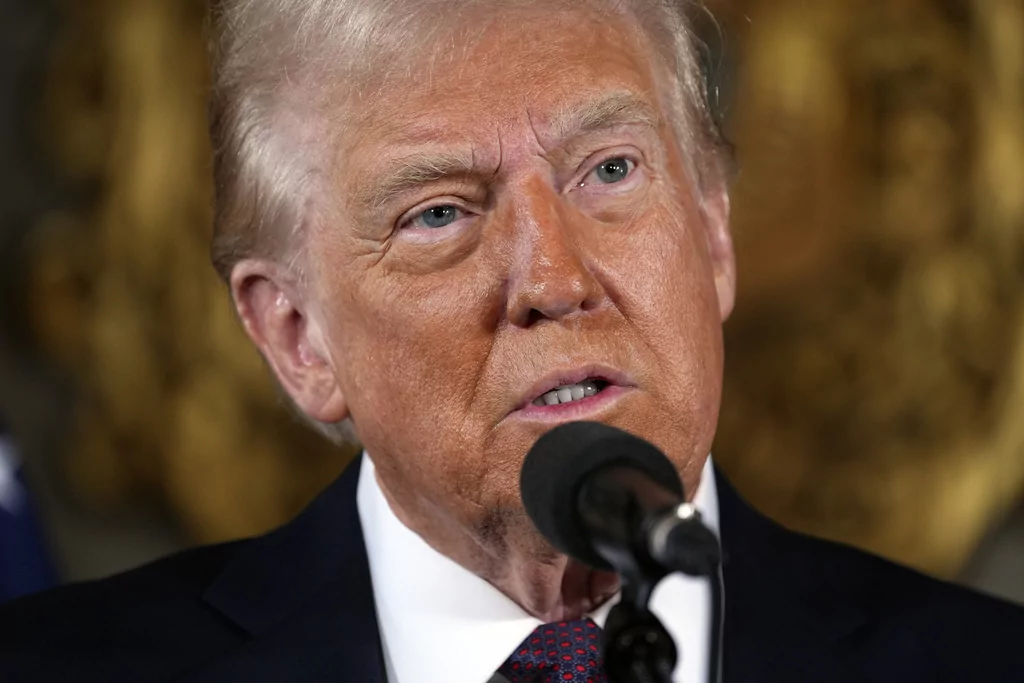
Officials of the European Union and its member countries are sharply criticizing President-elect Donald Trump’s refusal to rule out the use of military force to take control of Greenland.
Trump told reporters at a Tuesday press conference that he “can’t assure” the public that he would not resort to using the military to bring the Danish island territory under U.S. control.
“There is no question of the EU letting other nations in the world, whoever they may be, attack its sovereign borders,” French Foreign Minister Jean-Noel Barrot told France Inter Radio.

Barrot lamented in the interview that Trump’s expansionist rhetoric shows the world has “entered an era that is seeing the return of the law of the strongest.”
“There is obviously no question that the European Union would let other nations of the world attack its sovereign borders, whoever they are,” Barrot added. “We are a strong continent.”
Trump promised to “tariff Denmark at a very high level” if it obstructed his goal of purchasing the island, which he says the United States needs for “national security purposes.”
The president-elect even questioned the legitimacy of Danish ownership over Greenland.
“You have approximately 45,000 people there,” Trump told the press. “People don’t even really know if Denmark has any legal right to it, but if they do, they should give it up because we need it for national security. That’s for the free world — I’m talking about protecting the free world.”
The internationally recognized Kingdom of Denmark is made up of three territories: Greenland, the Faroe Islands, and Denmark proper. Greenland has been under the Crown of Denmark since the late 14th century but obtained home rule following a referendum in 1979.
Steffen Hebestreit, a spokesman for the German government, reacted to Trump’s remarks by clarifying that “the Charter of the United Nations is authoritative” and “that borders must not be moved by force.”
Asked whether the German government considers Trump’s statements about taking Greenland a sincere threat, the spokesman dismissed the question.
“We have no intention of judging them,” Hebestreit said. “We have taken note of them.”
Chief EU Commission spokeswoman Paula Pinho characterized the situation as “extremely hypothetical,” though she did affirm that the sovereignty of EU states must be respected.
“We are talking about fairly wild hypothetical stuff about an administration that hasn’t come in yet,” another spokesperson for the European Commission told the AFP news agency.
Even outgoing U.S. Secretary of State Antony Blinken has publicly rebuked Trump’s stated goal of purchasing Greenland, writing it off as impossible and unworthy of discussion.
“The idea expressed about Greenland is obviously not a good one, but maybe more importantly, it’s obviously one that’s not going to happen,” Blinken said at a Wednesday press conference in Paris. “So we probably shouldn’t waste a lot of time talking about it.”
Still, European powers are making moves to consolidate the continent’s power in the face of Trump’s heightened nationalism and America-first policy objectives.
Ministers of France, Poland, and Germany are preparing to travel to Washington immediately following the Jan. 20 inauguration.
The multinational envoy is being devised as a “show of European unity” to the new administration, one diplomat told Politico.
Trump also threatened to forcibly reclaim U.S. control over the Panama Canal — a transoceanic passage through the American continents operated entirely by the U.S. government until 1977.
CLICK HERE TO READ MORE FROM THE WASHINGTON EXAMINER
Negotiations and treaty stipulations slowly ceded control to the Panamanian government until 1999, when full control was turned over.
The president-elect claims operations of the passage are being illicitly influenced by Chinese interests, who he says are “ripping off” American ships.





